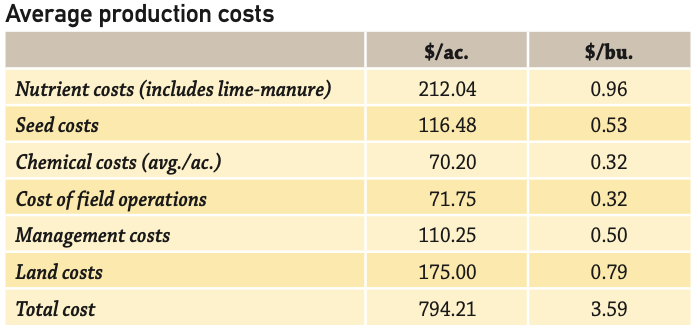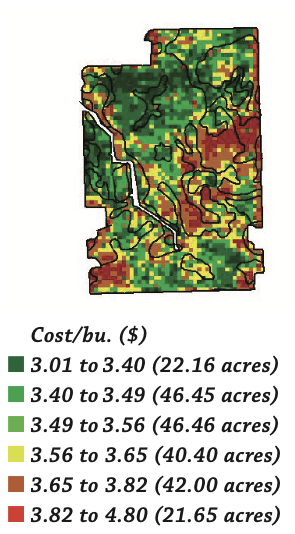Entering our 17th crop year, Premier Crop has been challenged by growers and industry skeptics. The recent euphoria over the value of growers’ data has been a welcome change in that more growers are starting to value their data and wonder how best to put it to use. But having spent so much time with growers, I know that in the end, the ultimate credibility test for every data offering will be “does it pay?”
And that’s where we started as a company. Our goal wasn’t just to use growers’ data to help them drive yield, but much more importantly, to drive profitability!
Our answer was to create a robust database that could track not only agronomic layers and input treatments, but also the costs associated with each treatment, plus land, management and field operations.
When we started in 1999, there were many years when the grain market provided very few significant swings. The challenge of developing a solid grain marketing plan started with knowing your cost per bushel. We took that challenge to the extreme — providing growers with a cost-per-bushel map that included tracking costs down to 0.1-acre increments.
A simplistic approach would be to take whole-field average costs and divide them by the yield file.
Our approach is much more accurate. If a variable-rate nutrient application calls for more nutrients to be applied in an area of the field, the cost of those nutrients is processed with the nutrient application file. If seeding populations are higher in a management zone, the associated cost of extra seed is tied to the planting file when it is processed.


This practice is a lot of work, but the results provide analysis that can make critical decision-making easier. Over the years, growers have used cost-per-bushel maps in many different ways: to have meaningful conversations with landlords; to change crop rotations on fields that show a profit advantage on one crop and not another; in some cases, to decide if there are areas of a field that should not be cropped and might fit better with a conservation use. One farming operation used its cost-per-bushel data to grow in another direction where the combination of land rents and yields was more profitable.
Accurate cost-per-bushel information is highly confidential and can provide the ultimate benchmarking solution, as it goes much deeper than just yield but compares the economics associated with those yields as well. Imagine the power of knowing your long-term aver- age cost per bushel by dominant soil types. Maybe you’ve mastered being profitable on lighter soil types, and that is one of your strategic advantages.
The knowledge you create from your data can be powerful in managing your farm and the risks involved in farming today.
Got Data?
- What strengths does your data show? Where does it suggest there is room for improvement?
- How might you use your data to manage risks in this growing season and beyond?
Originally published in Corn and Soybean Digest.
